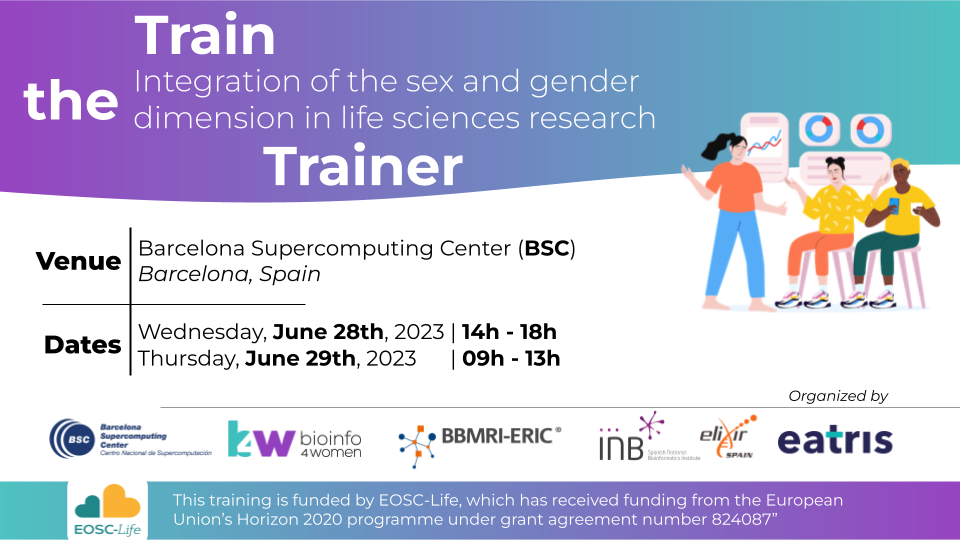| Date & Time | 28-29 June 2023 |
|---|---|
| Location | Barcelona, Spain |
Learn how to integrate the sex and gender dimension into your life sciences research at this free F2F Train-the-Trainer course organised by BSC (Bioinfo4Women programme), BBMRI-ERIC, INB/ELIXIR-ES, and EATRIS with funding from EOSC-Life!
- Wednesday, June 28, 14.00-18.00 (CEST) to Thursday, June 29 9.00-13.00 (CEST)
- Location: Barcelona Supercomputing Center (BSC)
- Course capacity: 15 participants
- No prerequisite training required
Overview
Life sciences researchers in the EU are being strongly encouraged to include the sex and gender dimension in their work. This inclusion helps them rethink standards and reference models used to represent sex and gender in research projects.
This train-the-trainers course will help participants develop skills in this area and teach them how to introduce the sex and gender dimension into their training activities, leading to more inclusive and impactful science.
Learning objectives
By the end of this course, participants are expected to:
- Understand appropriate applications of the terms “sex” and “gender” in biomedical research in training actions.
- Identify, understand, and think critically about complex aspects of sex and gender dimensions in biomedical research and how to communicate these in training activities.
- Identify how sex and gender categories affect the life sciences and LS training, and especially research data generation, collection, and use.
- Select, compile, and synthesise information that helps include the sex and gender dimension in research and integrate it into their training portfolio.
Davide Cirillo (Principal Investigator, Life Sciences Department, Machine Learning for Biomedical Research, BSC), Mónica Cano Abadía (Senior Scientist, ELSI Services and Research, BBMRI-ERIC), and Àtia Cortés (Recognised Researcher, Life Sciences Department, Social Link Analytics, BSC) will provide expert training and a set of methodological tools and case studies to illustrate how the sex and gender dimension can be successfully integrated into key Research and Innovation areas.
Learn more and register here.

















